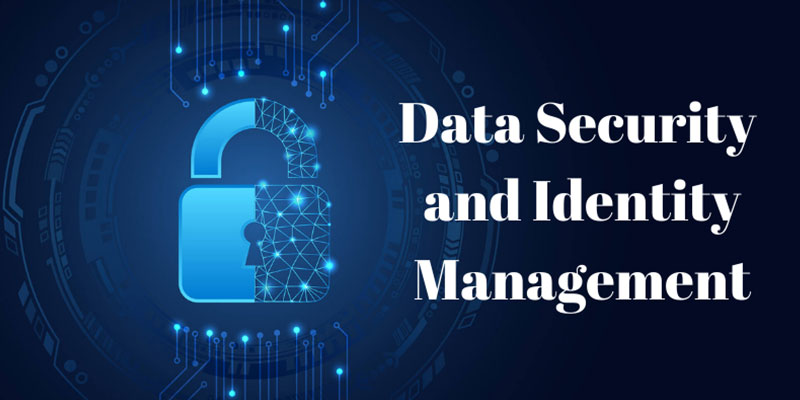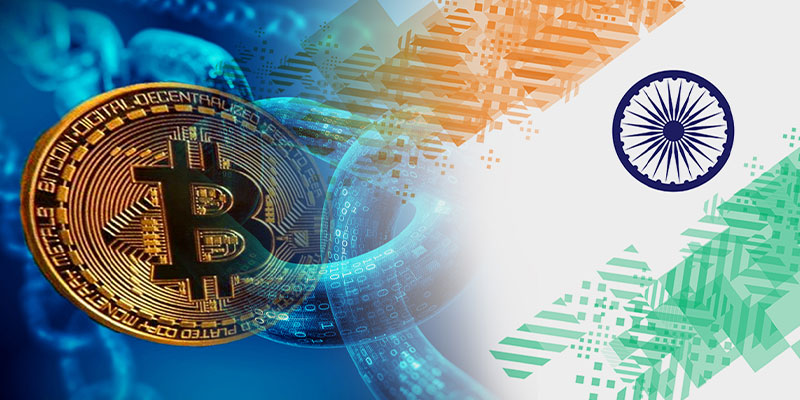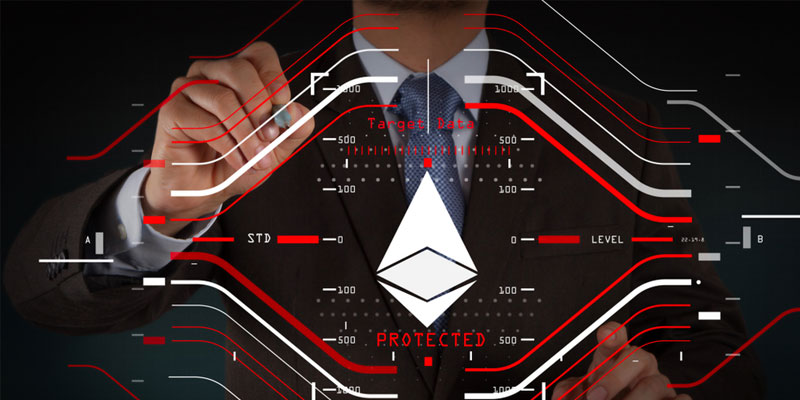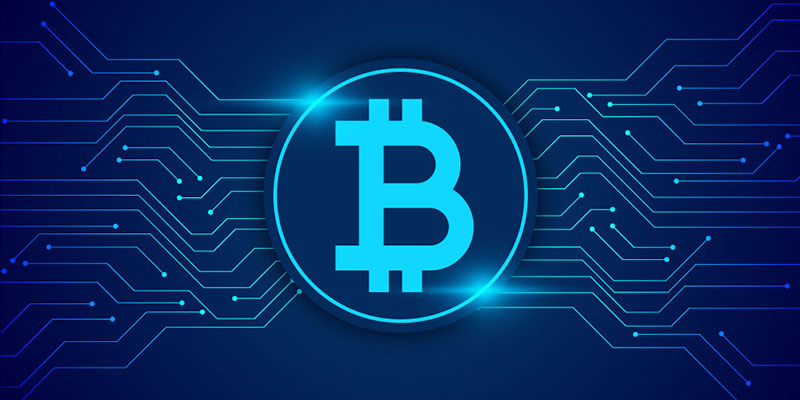Let's Connect fastest growing future tech web 3.0 blockchain group to connect & share with same minded people
How to Improve Data Security And Identity Management with Blockchain Technology ?
 Blockchain
Blockchain
Blockchain technology is a decentralized platform, where you can store and record all the immutable digital data which cannot be changed, hacked, or destroyed. Big companies that require a record of every piece of information and highly secured data use this technology because it is safe, reliable, and encrypted with cryptography.
Cyber-attacks have been a common problem for businesses, and institutions and data is valuable asset. To retain the information, blockchain technology not only furnishes data security but also eliminates the risk of the data being corrupted, hacked, or destroyed.
Importance of Data Security
Keeping your data safe and secure has been an important factor that everyone wants in their business. Blockchain technology has made it possible for everyone, now with the best data security functionalities. Data security is important because of the following reasons:
- Data Safeguarding –
- Keeps Confidential –
- Backup –
- Encrypted Data –
- Easy Access to Data –
- Monitors all the Activities –
- Automated Workflow –
- To Maintain Customers Trust –
Data security for any company or business is important because it protects the business from commercial loss, reputational damage, assets safeguarding, and many more.
It keeps everything confidential with access to only authorized users, and with a private password.
Good security means a good backup for all the digital information, and with blockchain technology, it has been possible. In case of any data corruption or manipulation, the original copy is always stored as a backup when the need occurs.
Being in a business requires all the sensitive data to be kept safe, starting from emails to other files. It keeps all the data encrypted with cryptography (unreadable text) and is secured with passkeys only for authorized users.
It also enables you to access your data whenever and wherever required for business purposes.
You can also monitor all the activities going on in your ecosystem and can identify all the risks or unusual actions taken regarding the data to prevent data corruption.
It records all the activities and provides the real-time alerting and possible data and security solutions needed, like strong/weak passwords, misconfigurations, and many more.
A brand very much relies on its customers and their trust in the brand over years. So when dealing with customers, you should make sure that their data is kept safe from cyberattacks and hackers.
Improving Data Security with Blockchain Technology
Data security is an essential factor when dealing with everything online or over the web. To keep the data safe and secure blockchain has no glitches. Although we are all aware of the fact that everything can be improved let us take a closer look at data security.
- Blockchain breaks the data into small pieces and distributes them across the network so that each node has a copy of the data and is immutable.
- It is reliable and offers data encryption to make sure that the data is not altered, and if done so the data will be depicted as invalid.
- The data here cannot be hacked or corrupted, for it is immutable, decentralized, cross-checked by the entire network, and it is also impossible for any changes to remain unnoticed in the ecosystem.
- The blockchain ecosystem can be both private and public. But if you want to access a private ecosystem, you must have a valid identity.
Importance of Identity Management
Identity is unique and is all paper-based. To reduce paperwork, the risk of them being lost, theft, or damaged; a digital identity is a problem solver here. It not only fastens the process but also reduces the paperwork and bureaucracy along with privacy and security. Blockchain facilitates the verification factor through which only authorized users with secured passkeys and credentials can access the data by eliminating the risk of the data being spoofed.
Read Also: How Much Does it Cost to Develop a Crypto Wallet App?
The foremost benefit of blockchain is that it eradicates the intermediaries, which lets individuals get total control over their digital identities, and was precisely designed to decipher the digital identity problem.
- Storage of Sensitive Data –
- Enabling Total Control over Identity –
- Requires Permission or is Permissionless –
- Decentralized Identifiers –
- Prevent Identity Fraud with Revocation Registry –
Though blockchain eliminates the mediators, but not entirely, it still eliminates the need, so that all the digital data can be stored directly on their servers.
Blockchain identity management simply means having total control over an individual identity, where it becomes difficult to steal such information, and it also manipulates the issue of identity theft.
You do not require any permission to become a node on a network, but you do require to take permissions from an authorized party to become a node on the blockchain network. This is done to safeguard the integrity and digital identity of the network.
Controlled by the identity owner, when a network issues you a verifiable credential they attach a DID with it, which is stored into the immutable store of data. Later, if you want to authenticate the credential, you can check the DID on the network to see who issued it, and then you can contact the issuing party.
The credentials of the digital identities are stored in an authorized phone of the user like the digital identity wallet. Now, what if the phone gets stolen or you lose it? What if someone tries to impersonate you with your identity? No worries! You can use it on another authorized device like your computer system or laptop, and you can write on blockchain that your phone has been stolen which will revoke the authorization on your mobile phone.
Improving Identity Management with Blockchain
With the rapid growth in technology, digital identity is a revolution while making online transactions worldwide. Not just transactions but everything that stores information and other details about the users, the data has become a valuable asset. To store that safely, identity management with blockchain has proved to be an advantage.
Let us dive in deep about improvising identity management with blockchain.
- Blockchain verifies the identity through various nodes, which reduces the risk of data breaches and cyber-attacks.
- It keeps your data secure with individual identities through which you can access the ecosystem and with cryptographic text compressed into alphanumeric values, making it difficult or almost impossible to leak or hack the data.
- Blockchain identity management system also enables you to maintain identities throughout the network via nodes and alerts you when there is any unauthorized access.
Summing up
Blockchain is an immutable store that records all the complete and accurate transactions, forming a block built upon the last block. The data uploaded to the store gets compressed into hash (alphanumeric values) and stored in the system. Talking about Data security and Identity management with blockchain technology, everything has certain loopholes, but the blockchain is way ahead and leading technology to provide the best services.
According to a source, 94% of the companies have experienced a data breach, and 79% were breached in the last two years. It does not just facilitate you with the best privacy, authorization, and encryption, additionally, it also makes sure that no unauthorized access to the system goes unnoticed in the network. If you have any queries regarding how to improve data security and identity management with blockchain technology, comment down and let us know.
Frequently Asked Questions (FAQ)
What is blockchain technology?
Blockchain technology is an immutable and decentralized source to store digital information where the data cannot be manipulated, hacked, or destroyed. Cryptocurrencies like Bitcoin and Ethereum are famous examples that use this technology because it is safe, reliable, and encrypted with cryptography.
What is data security?
In simple terms, safeguarding data from being hacked, deleted, or being manipulated by fraudsters and cyberattacks is called data security. At present, blockchain is one of the most reliable technologies in terms of data security. Since data is a valuable asset for any company, it is important to protect the client’s data.
Are data security and cybersecurity the same?
The direct answer is no, data security and cyber security are not the same. Data security mainly focuses on keeping the data safe whereas, cyber security means protecting everything on the internet which includes data, and other digital information.
What is the importance of data security?
Data security is important because it keeps the trust of a customer intact with the respective company and it is very important that a customer trusts the company he is associated with. Through data security, the data is kept safe and confidential, encrypted with cryptography.
What is identity management?
Identity management is also known as identity access management is a part of IT security. It makes sure that no unauthorized access can be made to an organization’s digital information inside or outside the enterprise. It mainly focuses on an individual’s username, passwords, biometrics so that no other person can have access to certain information and ensures that the data is completely secure.
What is the importance of identity management?
Identity management helps in preventing the exfiltration of a company’s data from any unauthorized login or access into the system. It also secures the data with unique IDs, passwords, credentials, and biometrics so that no one can manipulate the data and cause harm to the organization. It also provides enhanced business value and increases productivity and helps in maintaining the customer’s trust.
How does blockchain help in data security and identity management?
Blockchain technology is famous for the security that it provides. It keeps the data safe by preventing unauthorized access and the data is stored in such a way that no harm can be done to it. If anyone tries to do it is visible in the network system and can easily prevent the data breaches that one can cause from unauthorized access.
Author Name : Kiran Sagar





